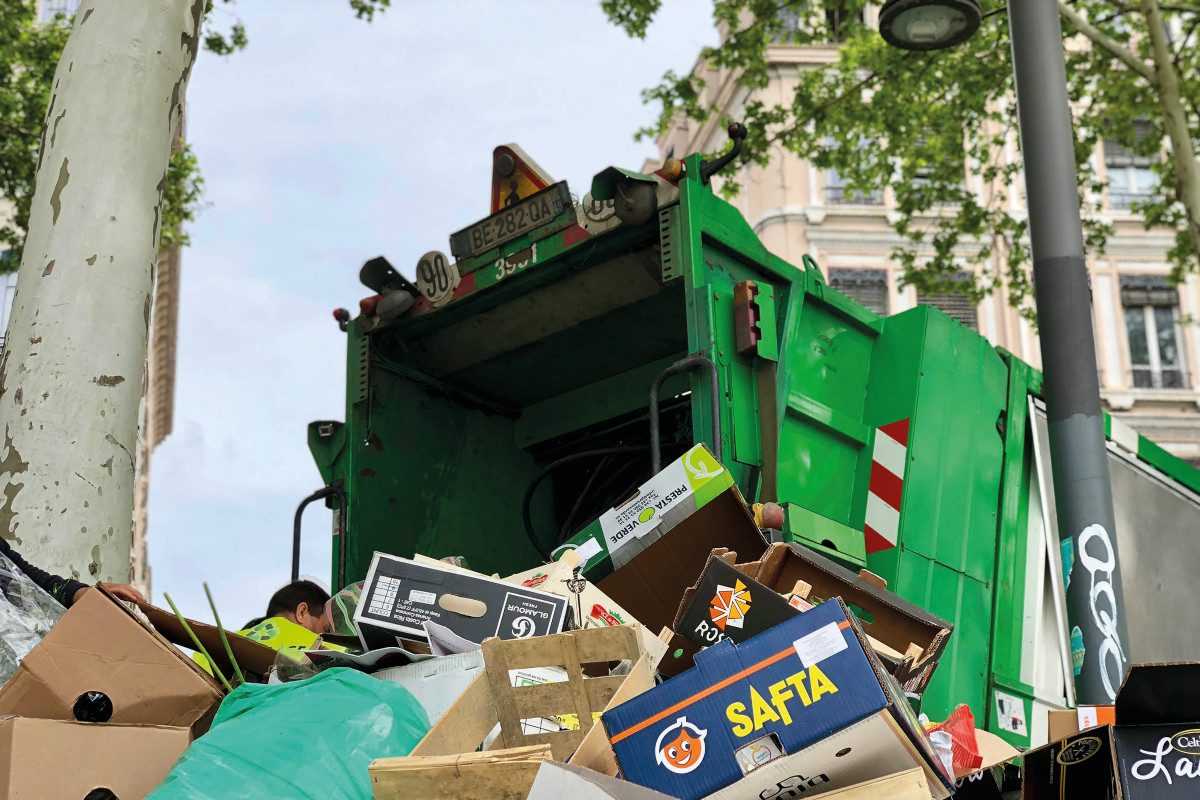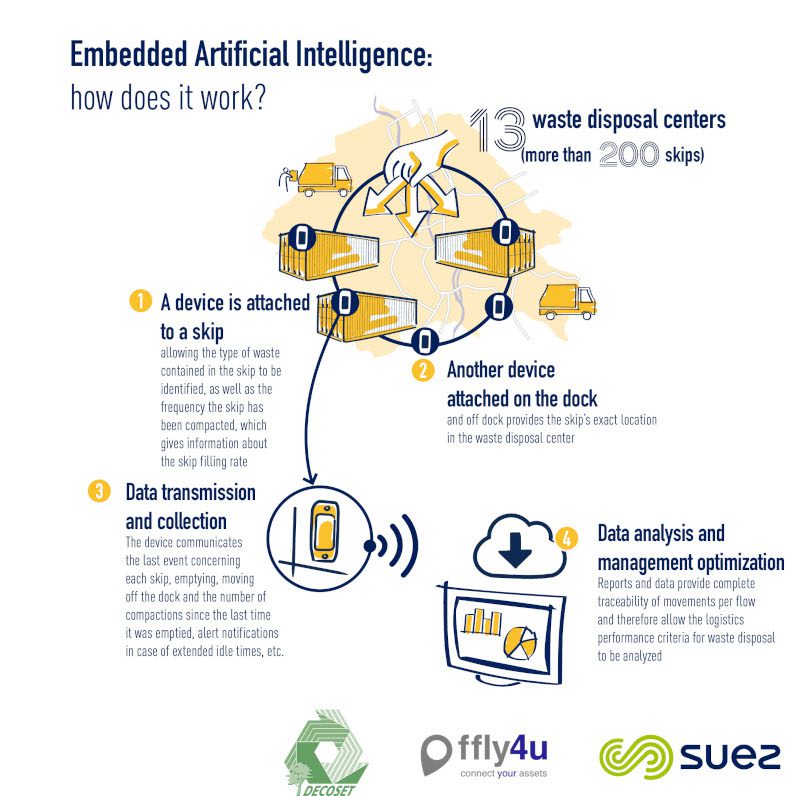
Since July 2020, the 200 skips that collect Toulouse inhabitants’ waste from the 13 waste disposal centers managed by Suez have been equipped with embedded artificial intelligence. Under test since 2019, the ffly4u solution has been deployed with the objectives of reducing fuel consumption, optimizing skip flows and reducing costs by optimizing collection resources.
Digitalization of waste collection with low power Edge AI technology
The partnership between Suez and ffly4u started at the end of 2019 through the implementation of a Proof Of Concept on one waste disposal center and around 10 skips. Seemingly encouraged by the success of the solution, Suez and Decoset[1] deployed the ffly4u solution in July 2020 in the 13 waste disposal centers in the region of Toulouse.
Via the use of connected devices attached to the skips, Suez says it has real-time visibility of a skip’s filling rate, and its location at and off the dock, both in the waste disposal centres and in transit. The operational teams have precise knowledge of the skip loading/unloading phases (i.e. whether a skip is on the truck or on the ground) and they are also notified in case of extended idle time. In a highly urbanized area that attracts more than 10,000 new inhabitants every year, digitalization optimizes the planning, filling and transport of skips and therefore allows a 5% reduction in greenhouse gas emissions (GHG) linked to waste transportation, says Suez.
The ffly4u innovation relies on the integration of AI and machine learning (ML) in a device with low energy consumption (4 to 6 years of autonomy). This solution, dubbed “Edge AI Low Power®”, and launched in 2018 by ffly4u, apparently makes it possible to identify very precisely the life-cycle phases of industrial objects in the recycling sector and also in the sectors of cable/fibre, trailers, returnable transit packaging, and aeronautics.

Jean-Christophe Didio, Regional Director of waste recycling at Suez, said: “Suez develops innovative solutions to capture more recoverable waste, continuously optimize collection and reduce environmental impact. The ffly4u solution, which has been successfully tested in the region of Toulouse, contributes significantly to the digitalization of our businesses. The Suez group and the ffly4u team are currently discussing the possibility of extending this solution to other areas”.
Rodolphe Henry, Sales Director Europe at ffly4u, added: “This project with the Suez group proves the added value of our approach and raises real awareness among our clients and stakeholders of the significant value creation potential of our services. Today, it is clear that the collection of raw data from basic sensors, such as geolocation or temperature, is not enough. Industrial players are looking for real data specific to their businesses”.
Notes
[1]At the end of 2018, Decoset asked SUEZ to be responsible for the management of 13 waste disposal centers in Toulouse with the objectives of continuous improvement, performance optimization and improvement of quality service to users.







